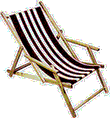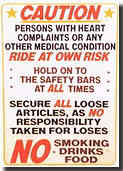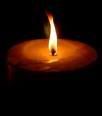Friday, June 29, 2007
Dino
 Dino: Living High in the Dirty Business of Dreams, by Nick Tosches.
Dino: Living High in the Dirty Business of Dreams, by Nick Tosches.I ashamed to admit I just read this book. It was highly recommended to me when published in 1992. Nick Tosches is a wonderful writer, I should have read it years ago for that reason alone. I also foolishly passed up several chances to meet Tosches (I was afraid of him, not my typical reaction to geniuses). I finally read Dino because I became curious about how & why Dean Martin & Jerry Lewis became the most popular comedy act in America in the decade after WWII. Tosches meticulously researched Dean Martin, came at him from all compass points. He had no choice but to put himself in his subject's head & think aloud, since Dean was never inclined to explain himself, never published his story even "as told to." Tosches goes directly to core of the matter, Dino's attitude - the state of his soul, really, with a number of perfect Italian phrases. It's a terrific book. So I'm not reviewing the book. You should read it if you haven't.
I liked that Dean Martin believed it was all bullshit, was born with the belief (The Italians have a phrase for this unpleasant vision of truth). Unlike Frank, who bought into it completely, acting out the three & four minute minidramas of the Great American Songbook. Lies. Pretty, tuneful, rhymed lies. So I can enjoy a lot of the mediocre material Dean tossed off on his Fifties Capitol label recordings, the Italian pop songs, the bleached Dixieland, even "That's Amore." Dino couldn't sing anything straight unless it was already something he needn't empty of meaning & emotion. Eventually, by the 1970s, he could hardly do a song all the way to the end, it was so pointless to him.
Still, there was something wrong about it. Now I'm sure Dean was wrong. Not because the lyrics weren't bullshit, or because of how audiences paid big bucks so they could throw aside reality & wallow in Frank's dramatic renditions, turning everything into big band Verdi, then get suckered at the tables & slots after the show, too. Dean was wrong because the music was great, & he still wouldn't trust it. There were other singers who recognized the lies & in their own ways refused to tell them. Ella Fitgerald broke through with numbers like "A-Tisket, A-Tasket" & "(If You Can't Sing It) You'll Have to Swing It (Mr. Paganini)," songs even more meaningless than "like a big pizza pie." Her voice was a brilliant instrument, so she scatted. Most lyrics were only syllables she pronounced so she could bounce, stretch & tweak the melody & be part of the band. She recorded nearly every classic pop song in the catalogue as pure music. & she learned it from the master, Louis Armstrong, at once the greatest musical genius, the greatest self-parodist, & the greatest leveller of material in the history of American entertainment. Knocked the Beatles out of #1 with the idiotic "Hello Dolly" just because he could. Whenever Satchmo was tempted to say "Fuck it all" he emptied his spit valve & rolled another number. Or the superb Vegas lounge performers, Louis Prima, Keely Smith, Buddy Greco. Prima partied with Sam Butera honking up his ass on a sax. He was just a gigolo spouting non sequiturs. Keely went blank-faced like a porcelain doll, something quite different than the neurotic detachment of Peggy Lee. Buddy started out at the jive ass border on "The Lady Is a Tramp" even Sinatra didn't dare trespass, totally manic, taking an axe to Larry Hart's Broadway show lyrics.
Dean was an excellent singer. He couldn't believe that his voice would tell the truth no matter what the words said, so he took the whole song, crumpled it up & lobbed it toward the nearest trash can. The more accomplished he became using his voice, the more surely he would have gotten the message across. No sweat. But even that much, even his growing skill & confidence, had value only because he could spend more time playing golf. Which may have been all he ever really wanted. Maybe it was like punching a clock at a Steubenville steel mill, only absurdly easier in his own estimation (because it was), & he earned an insane amount of money, more money than any human deserved. Did Dean's view of the universe justify getting on stage & throwing himself away? In some way, Dean did grasp the trap he was in, & began extricating himself from it the first real chance he had, on a nightclub stage in New York when he first let Jerry Lewis interrupt his straight act.
Labels: culture, music, what I'm reading














